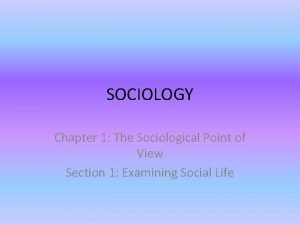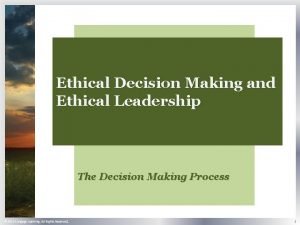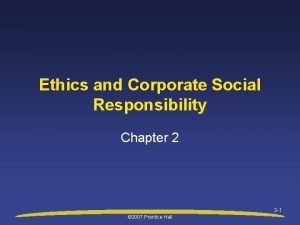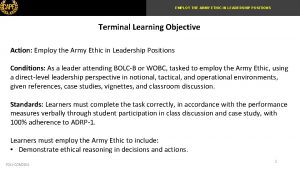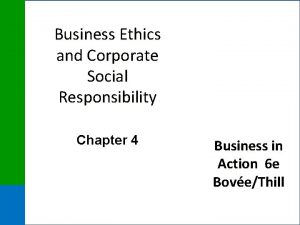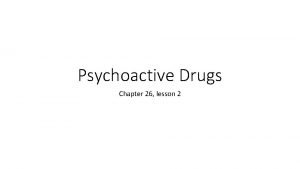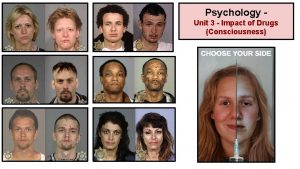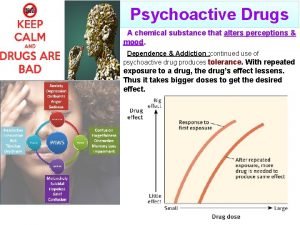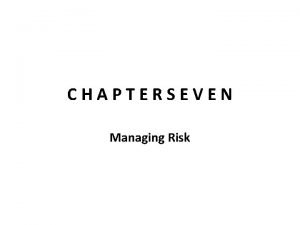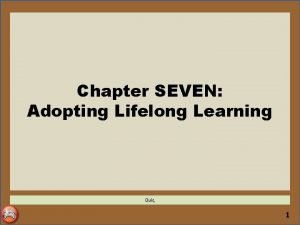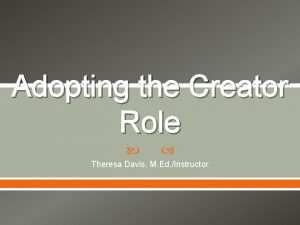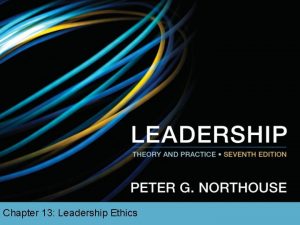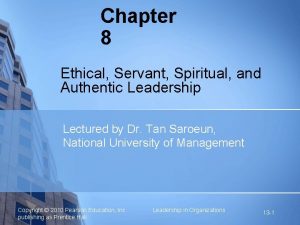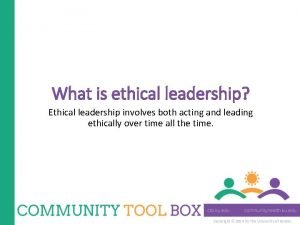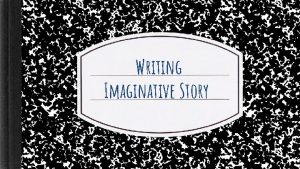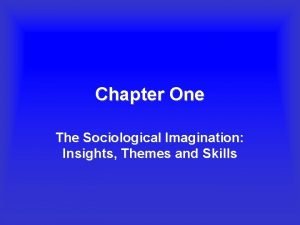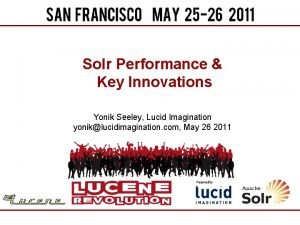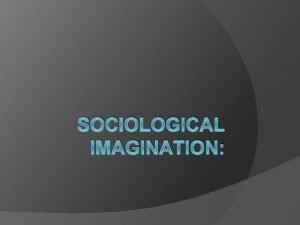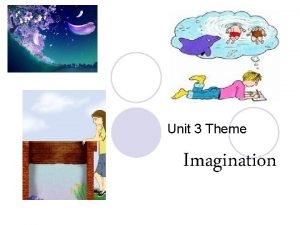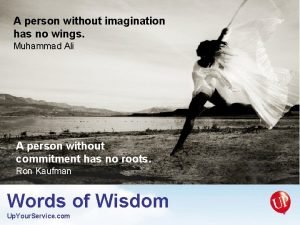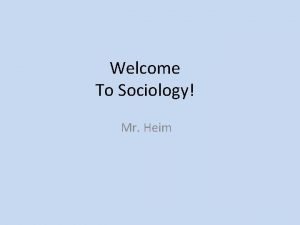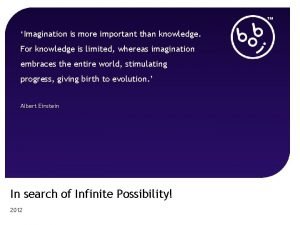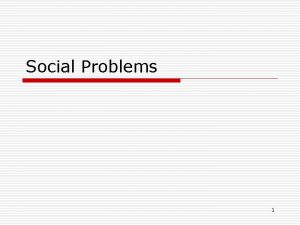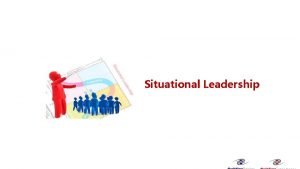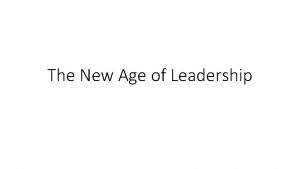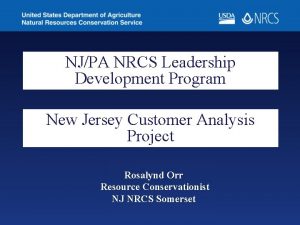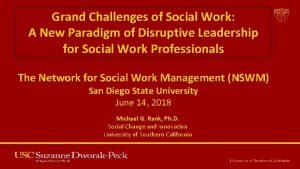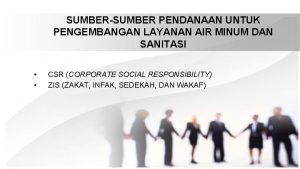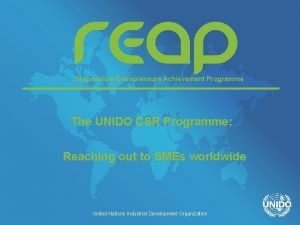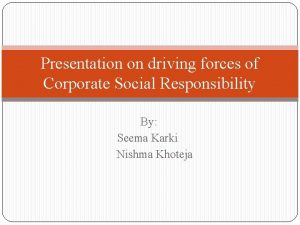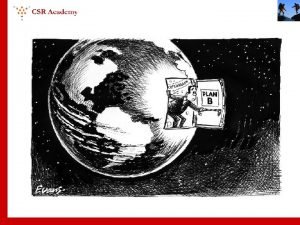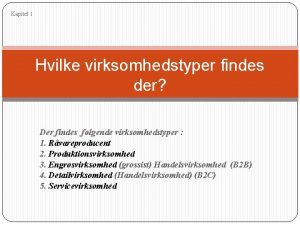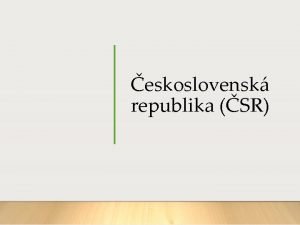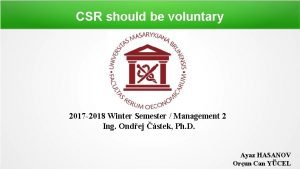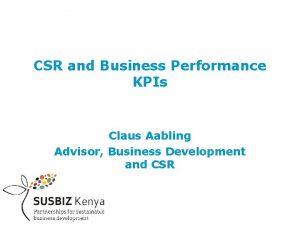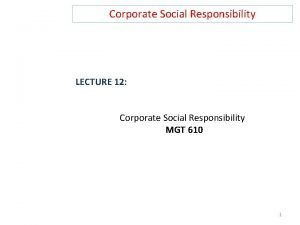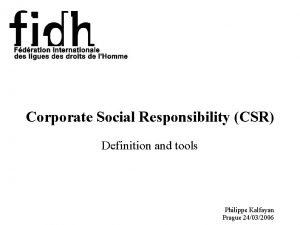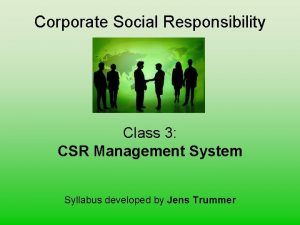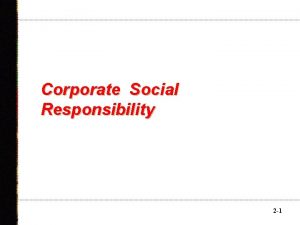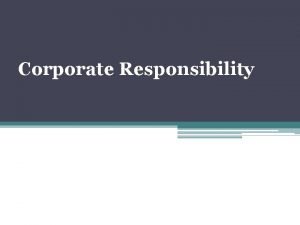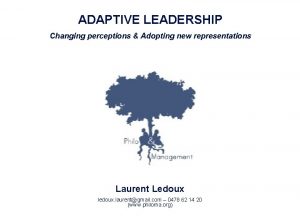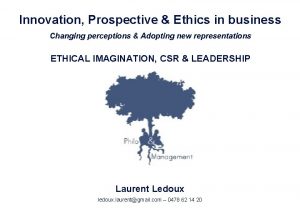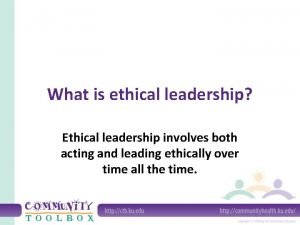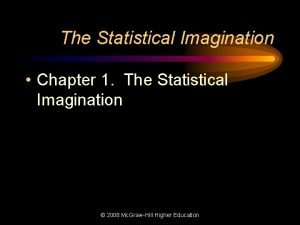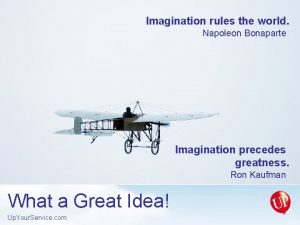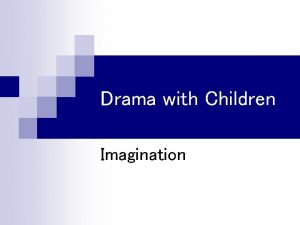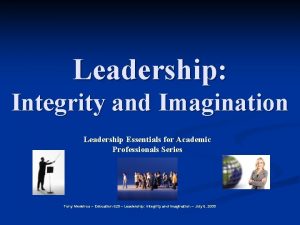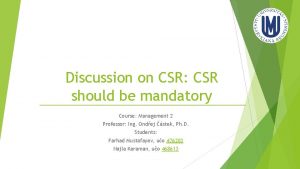ETHICAL IMAGINATION CSR LEADERSHIP Changing perceptions Adopting new












































































- Slides: 76

ETHICAL IMAGINATION, CSR & LEADERSHIP Changing perceptions & Adopting new representations Laurent Ledoux ledoux. laurent@gmail. com – 0478 62 14 20 (www. philoma. org) Laurent Ledoux 1

Introduction Rudolf Steiner John Dewey Jean-Paul Sartre Laurent Ledoux 2

What did Lee Iacoca, CEO of Ford ? What does the 1974 Ford Pinto scandal teach us about CSR? Laurent Ledoux 3

What did M. Toyoda, CEO of Toyota? What does the 2010 Toyota break scandal teach us about CSR? Laurent Ledoux 4

Case 2 – Steve Lewis What would you do if you were Steve Lewis ? Would you go to the meeting or not ? Steve Lewis To attend St Louis meeting? How should you respond if you are offered an opportunity at work solely because of your race or gender? Laurent Ledoux 5

Questions to think «individual» dilemmas – Steve Lewis’ case “How do my feelings and intuition define, for me, the ethical dilemma? ” (To respect oneself or to be loyal – loyal to whom? ) “Which of the values that are in conflict are most deeply rooted in my life and in my community? ” (To consider the dilemma as his parents’ son) Who am I? “Become who you are” “What combination of expediency and shrewdness, coupled with imagination & boldness, will move me closer to my personal goals? ” (To go to St Louis but to participate to the presentation) Source: Badaracco (1997); adapted by Ledoux (Friedrich Nietzsche) “Looking to the future, what is my way (not the way of others)? ” (To become partner in an investment bank) Laurent Ledoux 6

Variations on the word « Ethics » « Ethos » in Greek: custom, habit, way of behaving in an environment The primary meaning of «Ethos» or «Ethics» has therefore to do with: making your way, positioning yourself in an environment Ethics is a human activity. The purpose of ethics is not to make people ethical; it is to help people make better decisions An ethos is the doctrine of a particular art of living the best possible life and the means to pursue this aim (Marvin Brown, author & ethics consultant) (Marcel Conche, philosopher) (i. e. to live happily or to search for truth) A morality is a set of duties and imperatives (positive or negatives) that a society or a community gives to itself and which enjoins its members to conform their behaviour, «freely» & in an «unselfish» way, to certain values enabling to distinguish right & wrong. Laurent Ledoux 7

Potential sources to support ethical decision-making Codes of conducts & Mission statements Heuristics ( «sleep-test» rules) Legal duties Moral or ethical principles Laurent Ledoux 8

A framework for ethical theories Individual processes Adaptability & responsiveness Virtue Development Ethics (Aristotles, Gilligan, …) Ethics (Etzioni, Covey, …) Principles Results “Doing right” “Doing good” Deontological Teleological Ethics (Kant, Rawls, …) Ethics (Bentham, Mill, …) Institutional structure Fixity & consistency Source: Fisher & Lovell (2003); adapted by LL Laurent Ledoux 9

The Texas Instrument Ethics Quick Test (2001) § Is the action legal? § Does it comply with TI values? § If you do it, will you feel bad? § How will it look in the newspaper? If you know it’s wrong, don’t do it! If you’re not sure, ask. Keep asking until you get an answer. Laurent Ledoux 10

12 tests filter to validate or reject a decision Ask yourself these questions concerning the decision you wish to take +/- Veto Trigger Legal duties 1. Legalist test. Is my decision in accordance with the law? Corporate credos & mission statements 2. Organisational test. Is my decision in accordance with my organisation’s rules of conduct or ethics Heuristics 3. Hedonistic or intuitive test. Does my decision correspond with my gut feeling and my values? Does it make me feel good? Respect of ethical principles Virtue ethics 4. Light-of-day test. Would I feel good or bad if others (friends, family, colleagues) were to know of my decision and action? 5. Virtuous mean test. Does my decision add to, or detract from, the creation of a good life by finding a balance between justice, care and other virtues? Deontological ethics 6. Veil of ignorance/Golden Rule. If I were to take the place of one of those affected by my decision and plan would I regard the act positively or negatively? 7. Universality test. Would it be a good thing or a bad thing if my decision and plan were to become a universal principle applicable to all in similar situations, even to myself? Development ethics 8. The communitarian test. Would my action and plan help or hinder individuals and communities to develop ethically? 9. Self-interest test. Do the decision and plan meet or defeat my own best interests and values? Teleological ethics 10. Consequential test. Are the anticipated consequences of my decision and plan positive or negative? 11. Utilitarian test. Are the anticipated consequences of my decision and plan positive or negative for the greatest number? 12. The discourse test. Have the debates about my decision and plan been well or badly conducted? Have the appropriate people been involved? Laurent Ledoux 11

Cases – Peter Adario What would you do if you were Peter Adario, the head of the marketing department ? Peter Adario To dismiss Kathryn Mc. Neil? What should you do if a single parent on your staff is falling behind in his or her work? Laurent Ledoux 12

Questions to think «internal» dilemmas – Peter Adario’s case “What are the other strong, persuasive, competing interpretations of the situation or problem that I hope to use as a defining moment for my org. ? ” “What is the cash value of this situation and of my ideas for the people whose support I need? ” (Refine his message and shape it to the psychological & political context in which he was working, in terms of raising productivity or improving recruiting) (To understand that, for Walters, the basic ethical issue was irresponsibility: Mc. Neil’s for not pulling her weight & his for not taking action) Who are we ? “Truth happens to an idea. Its verity is in fact an event, an idea” (William James) “Am I playing to win? ” (To take swift actions to counter Walters: While Adario was out of the office, she worked with one of the bosses to swiftly resolve Mc. Neil’s issue) Source: Badaracco (1997); adapted by Ledoux “Have I orchestrated a process that can make the values I care about become the truth of my organization? ” (After hiring Mc. Neil, to start quickly to let her & her work known to his bosses & to campaign for a more family-friendly workplace) Laurent Ledoux 13

Questions to think «internal» dilemmas – E. Sakiz’s case What would you do if you were E. Sakiz ? What does the RU 486 (1982) case tell us about CSR ? Laurent Ledoux 14

Questions to think «societal» ethical dilemmas – Edouard Sakiz’ case “Have I done all I can to secure my position and the strength & stability of my organization? ” (To refrain to take decisions that could expose directly The organization or to confront the Bo. A’s president) “Have I thought creatively & imaginatively about my organization’s role in society & its relationship to its stakeholders? ” (To orchestrate a public debate among the different stakeholders) Who is the organisation? “Ethics result from the inescapable tension between Virtue & Virtu” (Aristote & Machiavel) “Have you done all you can to strike a balance, both morally & practically? ” (To market the new drug without endangering the organization) Source: Badaracco (1997); adapted by Ledoux “Should I play the lion or the fox? ” (To organize and support a vote that will trigger a massive counter-reaction from other actors) Laurent Ledoux 15

The 4 orders & the tensions between the individual and the group * Synthesis based on the texts from André Comte-Sponville, Marcel Conche & François Jourde Wisdoms Spiritualities Metaphysics (secular or religious) possibly induces Ethical order Good vs. Bad Ascending hierarchy for individuals (Self, subjective or relative Will) completes limits Moral order Right vs. Wrong (Universal or universalisable duties) limits Juridical & political order Legal vs. Illegal Descending hierarchy for groups limits Economic, technical & scientific order Possible vs. Impossible (Natural and rational Law) Laurent Ledoux 16

Dynamic – What does teach us the Toyota brake scandal ? 17 Laurent Ledoux – 31/03/11

CSR – Static definitions Corporate Social Responsibility The entirety of obligations legally required or voluntarily assumed by an enterprise to pass as an imitable model of good citizenship within a given field (Jean Pasquero) The three dimensions of CSR Fair Social Economic Sustainable Livable Viable Environmental Laurent Ledoux 18

Final thoughts – Where do we go? Another way to represent CSR? Biosphere Social sphere Equitable Economique Economic Durable sphere Vivable Viable Environnement Laurent Ledoux – 31/03/11

Optimal balance Sustainability 100% Towards Brittleness (Too little diversity) Optimum Greater efficiency (streamlining) 0% Towards Stagnation (Too little efficiency) Greater resilience Diversity & Interconnectivity Laurent Ledoux 20

The infinite Nature, the universe ? Or… Laurent Ledoux 21

The limit is what a generation owes to the next one Legendre … the 320, 000 light bulbs, equal to the number of kilowatt hours of electricity wasted in the United States every minute from inefficient residential electricity usage (inefficient wiring, computers in sleep mode, etc. ), that is 230 million per day. Laurent Ledoux 22

Motivation Power locus In whose interest & why? Who drives CSR? • For Share- or Stakeholders? • Marketing opportunism or moral duty? • Internally: managers or «corporates» ? • Externally: Govs, NGOs or corporates? Dynamic How did/does CSR evolve? • Concept’s evolution so far? • Today’s logic in a globalized economy? Method How to promote it? • Regulation or self-regulation? • Soft or hard? • Global or Issue-related? Laurent Ledoux 23

Dynamic – How has the CSR concept evolved so far? Content richness of the CSR concept 8 components of CSR nowadays Evolution so far? Citizen participation Proactive «engagement» Performance reporting Triple balance sheet Ethical rectitude Codes of conduct Social responsiveness « Societal management » system Environmental nuisance limit Priority given to the environment Sollicitude Employees’ needs Philanthropy Grants & corporate patronage Efficient management (Technical skills) Time Classical Traditional eco. (18 th century) (19 th c. ) Beg. of 20 th c. Source : Jean Pasquero (2005), adapted by Ledoux 1960’s 1970’s 1990’s Beg. of 21 th c. Laurent Ledoux 24

CSR Coregulation based on reputation rather than law ? Frydman Laurent Ledoux 25

Dynamic – How CSR is evolving in today’s globalized economy? “Coherency” of the coregulation system Transfer of States’ duties to corporates Evolution today? ss e oc r n p s*: roces p d e nds stylis Highly ity these tre r l in rea p each othe overla o ati v o nn i y tor a l u Proliferation through reputation & transparency Empowerment of 3 rd parties by States & Judges g Re Voluntary adoption of codes of conducts ly e ctiv Effe Hard 2003 Growth of surveillance & social controls’ web Nike vs. Kasky Consumers’ CSR concerns legally recognized 2001 Corporates’ emancipation from states Politization of comsumption Soft Global Compact corporates become world citizens » ally ng m r «Fo -fulfilli y self but rophec p Time * Source: “Responsabilité sociale des entreprises et co-régulation”, by Berns & al, 2007 Laurent Ledoux 26

Emmanuel Faber Milton Friedman Laurent Ledoux 27

Toniutti Laurent Ledoux

Collaboration & Organic growth Laurent Ledoux

Cradle 2 Cradle 30 Laurent Ledoux – 31/03/11

Challenging business models: Product Service Systems Laurent Ledoux

Evolution of the relations between capitalism & the dominant ethos Post-capitalist Ethos Protestant Progressist ethos Birth of Expansion of modern industrial Capitalism Rise of the postcapitalist economy ? Time Consumerist Capitalism Promotion of a childish ethos According to Benjamin Barber in « Consumed: How Markets Corrupt Children, Infantilize Adults, and Swallow Citizens Whole » , 2007; See also Anne Salmon’s analysis in « Ethique et ordre économique : une entreprise de séduction » , 2002 Laurent Ledoux 32

LEADERSHIP Mobilize the group for the adaptive work Heifetz Photo: ΠΑΣΟΚ Laurent Ledoux 33

Distinguishing technical problems & adaptive challenges Problem definition Solution and implementation Primary locus of resp. for the work Kind of work Type I Clear Physician Technical Type II Clear Requires learning Physician &patient Technical &adaptive Type III Requires learning Patient > physician Adaptive Source: “Leadership without easy answers”, by Ronald Heifetz Laurent Ledoux 34

Modulating the stress Source: “Leadership on the line”, by Ronald Heifetz & Marty Linsky Laurent Ledoux 35

Adaptive leadership – 5 strategic principles of leadership Identify the adaptive challenge (Unbundle the issues) Protect leadership voices w/out authority (Cover who raises questions authorities can’t raise) Give the work back to people 5 strategic principles of Leadership (Put pressure on people with the problem) Keep the distress level tolerable Focus on ripening issues (Control the pressure cooker) (Counteract work avoidance mechanisms) Source: “Leadership without easy answers”, by Ronald Heifetz, adapted by Ledoux Laurent Ledoux 36

Adaptive leadership – The politics of change & Going beyond your scope of authority Adaptive challenge Faction Participant Scope of authority A ● B ● Constituencies Laurent Ledoux 37

Adaptive leadership – Nye: effective leadership styles - Soft, Hard & Smart Power skills Smart Power (Combined Resources) 1. Contextual IQ (broad political skills) • Understand evolving environment • Capitalize on trends ( « create luck » ) • Adjust style to context & followers’ needs Soft Power (Inspirational) 1. Emotional IQ • Ability to manage relationships & charisma • Emotional self-awareness and control 2. Communications • Persuasive words, symbols, example • Persuasive to near & distant followers Hard Power (Transactional) 1. Organizational capacity • Manage reward & information systems • Manage inner & outer circles 2. Machiavellian skills • Ability to bully, buy and bargain • Ability to build & maintain winning coalitions 3. Vision • Attractive to followers • Effective (balance ideals & capabilities) Source: “The powers to lead” by Joseph Nye, adapted by Ledoux Laurent Ledoux 38

The 5 stages of culture Language Relationship to People 5 “Life is great” Team 4 “We’re great” Stable partnership 3 “I’m great” Personal domination 2 “My life sucks” Separate 1 “Life sucks” Alienated 3 49% 2 From “Tribal leadership” by Logan, King & Fischer-Wright, 2008; adapted by Ledoux 1 25% 2% 2% Laurent Ledoux 4 5 39

Laurent Ledoux 40

Team management principles Inspired by Isaac Getz (Freedom Inc. ) Intrinsic equality Personal growth Capacity to self-direct Laurent Ledoux 41

Intrinsic equality 1 Whyway ‐ ‐ ‐ 2 Humility ‐ ‐ ‐ 3 Ignorance’s strength Transparency No titles Fairness ‐ ‐ ‐ Everybody Open communication Participation Diversity Wage gap reduction Bonus sharing Open space for all wants to take initiatives Laurent Ledoux 42

1 Personal growth Exploration ‐ ‐ ‐ 2 Trust ‐ ‐ ‐ 3 Open trainings Collective intelligence Godfathers Risky appointments Tolerance for errors Resilience faith Benevolence ‐ ‐ ‐ Craftsmanship Dignity Coherence Everybody is able to take initiatives 43 Laurent Ledoux 43

1 Capacity to self-direct Adults ‐ ‐ ‐ 2 Engagement ‐ ‐ ‐ 3 No rules No credos No monkeys Common good Team practices Societal projects Let go ‐ ‐ ‐ Loosening follow ups Distance Improvisation Everybody has the liberty to take initiatives Laurent Ledoux 44

Structure of stable relationships From “Tribal leadership” by Logan, King & Fischer-Wright, 2008 Marina Olivier Laurent Triad Laurent Ledoux 45

rust your people eward output nderstand the business case tart at the top reat people as individuals Laurent Ledoux

Laurent Ledoux 47

Awa Laurent Ledoux 48

1 2 Listen to your liberating question Get off the dance floor & on the balcony 4 3 Let go Learn daily to ride your elephant Laurent Ledoux 49

1 Listen to your liberating question Laurent Ledoux 50

What am I responsible for? Laurent Ledoux 51

Jankélévitch & the prism of virtues Laurent Ledoux 52

2 Get off the dance floor & on the balcony Laurent Ledoux 53

Pratique perso 2 Get on the balcony to see the patterns of the dance floor and to look at yourself 1 Diagnose the system 3 See yourself as a system 2 4 Mobilize the system Deploy yourself Laurent Ledoux 54

4 related groups of activities of adaptive leadership I Diagnose the system II • Be ready to observe & interpret before intervening III Mobilize the system • Make interpretations • Diagnose the system itself • Design effective interventions • Diagnose the adaptive challenge • Act politically • Diagnose the political landscape • Orchestrate the conflict • Understand the qualities that makes an organization adaptive • Build an adaptive culture See yourself as a system • Identify who you are IV Deploy yourself • Stay connected to your purposes • Know your tuning • “Engage courageously” • “Broaden your bandwidth” • Inspire people • Understand your roles • Run experiments • Articulate your purposes • “Thrive” Source: “Leadership without easy answers”, by Ronald Heifetz, adapted by Ledoux Laurent Ledoux 55

Lessons learned on leadership 1 Act & talk as if you would control the situation Know when & how not to interfere 2 Give your team & yourself credit for success but also responsibility for part of the failures Build an environment in which others 5 can succeed 3 Talk about the future, while recognizing organizational realities and their limitations 4 Laurent Ledoux 56

3 Learn daily to ride your elephant Laurent Ledoux 57

Spiritual exercises Philosophy as a way of being Hadot Photo: Robin Zebrowsk Laurent Ledoux 58

Moral imagination is the condition of free deeds Steiner Laurent Ledoux 59

Ethical dilemmas Reveal Ourselves & stimulate creativity Badaracco Laurent Ledoux 60

The Whyway Semler Laurent Ledoux 61

Courageous conversations & daring to speak into darkness Strom Laurent Ledoux 62

Respect for craftmanship Sennett Laurent Ledoux 63

Daily physical exercices & eating habits Laurent Ledoux 64

Give time Teach & Learn Laurent Ledoux 65

4 Let go Laurent Ledoux 66

4 Pratique perso 4 Let go (Surfer la vie – J. de Rosnay) Laurent Ledoux

Photo: Radoslav Minchev The best leader is the one whose existence the group barely knows Laozi, 630 BC Laurent Ledoux 68

EFFICIENCY Let the effect impose itself Julien Laurent Ledoux 69

Nature is infinite in time and space Conche Laurent Ledoux 70

Extend ethics to nature Callicott Laurent Ledoux 71

“It” shoots Be one with the bow, the arrow, the target and everything, everyone else Awa Laurent Ledoux 72

Another world is possible Laurent Ledoux 73

To the memory of François Vassart (1925 – 2001) who was my first spiritual master and made me copy a thousand time: “If you can meet with Triumph and Disaster And treat those two impostors just the same…” (Si tu peux rencontrer triomphe après défaite Et recevoir ces deux menteurs d’un même front) (Rudyard Kipling – “If”) “Gagner pour vous, Pour moi perdant, Avoir été peut-être utile C’était un rêve modeste et fou Vous me mettrez avec, en terre Comme une étoile au fond d’un trou” (To win for you, losing for me To have been, perhaps, useful That was a modest and crazy dream You’ll bury me with it As a star in a deep hole) (Aragon – “J’entends, J’entends”) Laurent Ledoux 74

Bibliography § The practice of adaptive leadership, Ronald Heifetz, Alexander Grashow & Marty Linsky, HBR ed. , 2009 § Leadership without easy answers, Ronald Heifetz, HBR ed. , 1994 § Leadership on the line, Ronald Heifetz & Marty Linsky, HBR ed. , 2002 § Leadership can be taught, Sharon Daloz Parks, HBR ed. , 2005 § Defining moments, Joseph Badaracco, HBR ed, 2003 § Leading quietly, Joseph Badaracco, HBR ed. , 2002 § Questions of character, Joseph Badaracco, HBR ed. , 2006 § Arts of the wise leader, Mark Strom, Sophos ed. , 2007 (www. artsofthewiseleader. com) § The powers to lead, Joseph Nye, HBR ed. , 2008 § Leading with wisdom: spiritual-based leadership in business, Peter Pruzan & Kirsten Pruzan Mikkelsen, Response ed. , 2009 § Rational, Ethical & Spiritual Perspectives on Leadership, Peter Pruzan, Peter Lang ed. , 2009 § Leadership, Spirituality and the Common Good, Henri-Claude de Bettignies & Mike J. Thompson, Garant ed. , 2010 § The Seven-day weekend, Ricardo Semler § Freedom Inc. , Bryan Carney & Isaac Getz Laurent Ledoux 75

Bibliography § La responsabilité sociale de l’entreprise comme objet des sciences de gestion, Jean Pasquero dans Responsabilité sociale et environnementale de l’entreprise, sous la dir. de Marie-France B. -Turcotte et Anne Salmon, Presses de l’Université du Québec, 2005 § Responsabilité sociale des entreprises et co-régulation, T. Berns, P. F. Docquir, B. Frydman, L. Hennebel & G. Lewkowicz, Bruylant 2007 § La société malade la gestion, Vincent de Gauléjac, Seuil, 2005 § Le capitalisme est-il moral, André Comte-Sponville, Albin Michel, 2004 § Ethique et ordre économique: une entreprise de séduction, CNRS Editions, 2002 § Le fondement de la morale, Marcel Conche, PUF, 1993 § Rethinking business ethics – A pragmatic approach, Sandra Rosenthal & Rogene Buchholz, Oxford Press, 2000 § Business Ethics & Values, Colin Fischer & Alan Lovell, FT Prentice Hall, 2003 § Working ethics, Marvin Brown, Jossey-Bass, 1990 § Responsabilité sociale de l’entreprise : Faut-il enchaîner Prométhée ? , Philippe de Woot, Economica, 2005 § Does business ethics pay? , S. Webley & E. More, London IBE, 2003 § Managing messy moral matters, C. M. Fischer & C. Rice, in Strategic Human Resources, J. Leopold, L. Harris & T. J. Watson, 1999 § Consumed: How Markets Corrupt Children, Infantilize Adults, and Swallow Citizens Whole, B. Barber, 2007 § Capitalism at crossroads, S. Hart, 2005 Laurent Ledoux 76
 By adopting a sociological imagination
By adopting a sociological imagination The perceived relevance or importance of an ethical issue
The perceived relevance or importance of an ethical issue With lots of imagination and new ideas
With lots of imagination and new ideas New model of csr
New model of csr Changing nature of leadership
Changing nature of leadership Perbedaan ethical dilemma dan ethical lapse
Perbedaan ethical dilemma dan ethical lapse Army ethical lenses
Army ethical lenses Csr and business ethics
Csr and business ethics Drug that alters moods, thoughts, and sense perceptions
Drug that alters moods, thoughts, and sense perceptions Trustyourperceptions
Trustyourperceptions Drugs that alter moods thoughts and sense perceptions
Drugs that alter moods thoughts and sense perceptions Psychedelic drugs that distort perceptions and evoke
Psychedelic drugs that distort perceptions and evoke A chemical substance that alters perception and mood
A chemical substance that alters perception and mood Risk response
Risk response Adopting lifelong learning
Adopting lifelong learning Adopting materials
Adopting materials Timothy is writing an essay about adopting pets
Timothy is writing an essay about adopting pets Adopting lifelong learning
Adopting lifelong learning Adopting the creator role
Adopting the creator role Contoh soal adopting a different point of view
Contoh soal adopting a different point of view Executive ethical leadership reputation matrix
Executive ethical leadership reputation matrix Heifetz perspective on ethical leadership
Heifetz perspective on ethical leadership Ethical servant spiritual and authentic leadership
Ethical servant spiritual and authentic leadership Ethical leadership
Ethical leadership Ethical leadership
Ethical leadership Luise reddemann imagination
Luise reddemann imagination How to write an imaginative story
How to write an imaginative story Destination imagination 2001
Destination imagination 2001 Empowering imagination
Empowering imagination The sociological imagination chapter 1 summary
The sociological imagination chapter 1 summary Lucid imagination
Lucid imagination Imagination development
Imagination development Sociological imagination abortion
Sociological imagination abortion Solr
Solr Sociological imagination examples race
Sociological imagination examples race Youtube sociological imagination
Youtube sociological imagination Destination imagination 2001
Destination imagination 2001 Sociological imagination vs sociological perspective
Sociological imagination vs sociological perspective How does the morning begin differently for john and grandpa
How does the morning begin differently for john and grandpa Maxine greene releasing the imagination
Maxine greene releasing the imagination Exercise your imagination
Exercise your imagination The man with no imagination has no wings
The man with no imagination has no wings Interactionist perspectives
Interactionist perspectives Betty bought butter
Betty bought butter Social logical imagination
Social logical imagination Knowledge empowers imagination
Knowledge empowers imagination Imagination farms
Imagination farms Social issues definition
Social issues definition Empowering imagination
Empowering imagination General electric imagination at work
General electric imagination at work Transactional vs transformational
Transactional vs transformational Adaptive leadership theory
Adaptive leadership theory Situational leadership vs adaptive leadership
Situational leadership vs adaptive leadership New age leadership
New age leadership Leadership and the new science
Leadership and the new science Leadership development new jersey
Leadership development new jersey New paradigm leadership
New paradigm leadership New paradigm leadership
New paradigm leadership Apa itu csr
Apa itu csr Unido csr
Unido csr Proposal csr
Proposal csr Five driving forces of csr
Five driving forces of csr Csr academy
Csr academy Archie carroll pyramid
Archie carroll pyramid Csr of marriott hotel
Csr of marriott hotel Hvad er csr
Hvad er csr Csr architecture
Csr architecture Dějiny udatného českého národa vznik čsr
Dějiny udatného českého národa vznik čsr Csr voluntary
Csr voluntary Csr kpi examples
Csr kpi examples Objectives of csr
Objectives of csr Definition of csr
Definition of csr Csr management system
Csr management system Objectives of csr
Objectives of csr Significance of csr
Significance of csr Concepts of csr
Concepts of csr Clsparse read csr
Clsparse read csr
